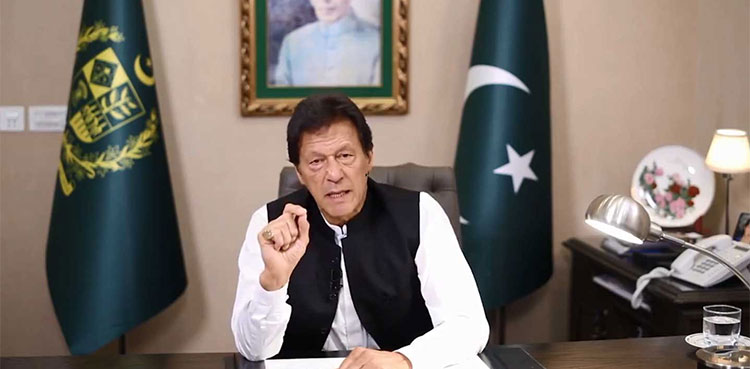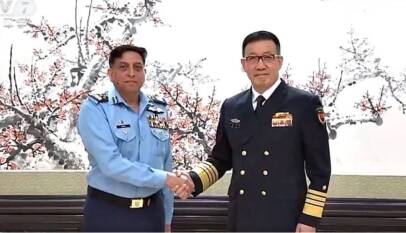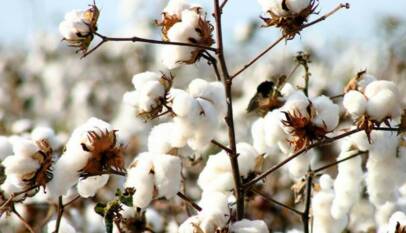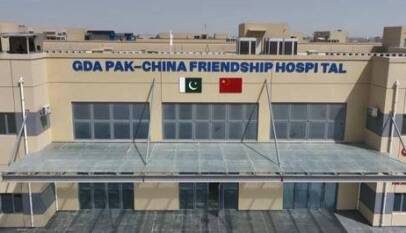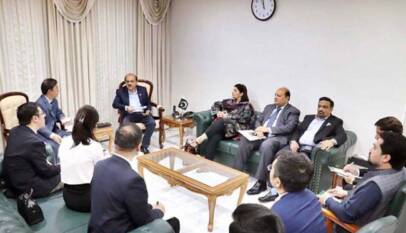CPEC’s second phase to usher in a new era of industrialization, says PM Khan
In his address to the nation, Prime Minister Imran Khan said that recent visits to China and Russia will have far reaching impact on the country’s economy. He highlighted that China has given the assurance of high quality and expeditious development of the second phase of the CPEC. He also mentioned that this phase primarily revolves around the development and industrialization of Special Economic Zones (SEZs).
Prime Minister Imran Khan has announced a major relief package for the inflation-stricken masses by reducing the prices of fuel, electricity and taking other measures which also include exempting IT sector from all taxes.
“We are anticipating that oil prices will not go down amid Ukraine crisis… so instead of increasing their prices we have decided to slash petrol and diesel by Rs10 per litre,” he announced in a 40-minute-long address to nation on Monday in which he discussed country’s foreign policy, Ukraine crisis, inflation and other issues.
While regretting that no new dams were built during the last 50 years, the prime minister said the PTI government has to increase electricity prices owing to the fuel adjustment charges.
“We are building 10 new dams that will be completed in the next 5 to 10 years… and domestic electricity prices will not be affected by the global inflation”
But despite this, he said the government is also reducing the prices of electricity by Rs5 per unit which will ultimately reduce the electricity bills of the masses “from 20 to 60 per cent”.
“We have also decided that till the next budget we will not increase the prices of [petrol, diesel and electricity].”
“The students who have graduated and are unemployed, we will give them internships so that they can earn. We will grant scholarships to students who want to pursue higher education.”
Moreover, the premier while terming the IT sector as future of the country said that freelancers as well as companies associated with the IT sector have been exempted from all taxes.
“100% foreign exchange exemption. 100% exemption from capital gain tax for investments in start-ups.”
PM Imran went on to say that under new industrial policy which he said he will unveil tomorrow (Tuesday) in Lahore, will allow investors to establish industries in Pakistan without disclosing their sources of income.
To enhance purchasing power of consumers, the prime minister announced to increase Ehsaas Kafalat stipend by 17% to Rs14,000. “8 million poor families will benefit from this facility.”
Likewise, under the Kamyab Jawan programme country’s youth and farmers would be given interest-free loans while deserving people would be given subsidised loans to build their homes.
Independent foreign policy
“I always wanted that Pakistan pursue independent foreign policy that should be in the country’s interest,” PM Imran said at the beginning of his address.
The premier said when Pakistan joined the US war on terror during former military ruler Pervez Musharraf era, the country paid heavy price in terms of economic and human losses.
“I always opposed that [Pakistan] had nothing to do with the US war in Afghanistan.”
PM Imran while referring to the past governments of PPP and the PML-N said: “Both the democratic governments remained tight-lipped when the US was carrying out drone strikes in Pakistan… even [former president] Zardari told one US official that ‘we did not care about collateral damage’.”
“I always opposed that [Pakistan] had nothing to do with the US war in Afghanistan.”
The prime minister told the nation that the leaders having assets and offshore accounts abroad could never take decisions in nation’s interest and advised the people against voting such leaders.
PM Imran said his recent visit to Russia was aimed at strengthening economic ties with country was planning to import two million tons of wheat as well as gas from Moscow.
He also briefly touched on his visit to China where he attended Beijing Olympics saying the result of the visit will be visible with the start of the CPEC second phase.
Earlier, Federal Minister for Information and Broadcasting Fawad Chaudhry confirmed that PM Imran will be addressing the nation later in the day.
The minister said that the premier will “take the nation into confidence” to discuss the “economy and global challenges” the country will face in light of the ongoing Ukraine crisis.
The conflict caused oil prices to jump, with Brent crude rising above $105 a barrel for the first time since 2014, after Russia’s attack on Ukraine exacerbated concerns about disruptions to global energy supply.
“Russia is the third largest oil producer and second largest oil exporter. Given low inventories and dwindling spare capacity, the oil market cannot afford large supply disruptions,” UBS analyst Giovanni Staunovo said.
A day earlier, for the first time since the start of Russian invasion, Foreign Minister Shah Mahmood Qureshi held a telephonic conversation with his Ukrainian counterpart to discuss the situation, calling for de-escalation of tensions between Russia and Ukraine. However, the conversation stopped short of either condemning the Russian invasion or showing explicit support to Kyiv in a calculated move to maintain a delicate balance.
Russia-Ukraine conflict
On February 24, Russian forces fired missiles at several cities in Ukraine and landed troops on its coast, officials and media said, after President Vladimir Putin authorised what he called a special military operation in the east.
Ukrainian soldiers battled Russian forces on three sides after Moscow mounted an assault by land, sea and air in the biggest attack on a European state since World War II.
Explosions and gunfire were heard throughout the morning in Kyiv, as missiles rained down on targets and authorities reported columns of troops pouring across Ukraine’s borders from Russia and Belarus to the north and east, and landing on the southern coasts from the Black Sea and Azov Sea.
Russia’s political and economic isolation deepened on Monday (today) as its forces met stiff resistance in Ukraine’s capital and other cities in the biggest assault on a European state since World War Two.
President Vladimir Putin put Russia’s nuclear deterrent on high alert on Sunday in the face of a barrage of Western-led reprisals for his war on Ukraine, which said it had repelled Russian ground forces’ attempts to capture urban centres.
A day earlier, on February 27, Russian military vehicles had pushed into Ukraine’s second-largest city and explosions rocked oil and gas installations on a fourth day of fighting in the biggest assault on a European state since World War Two.
Russian soldiers and armoured vehicles were seen in different parts of the northeastern city of Kharkiv and firing could be heard, a witness said. A burning tank was visible in a video posted by the government.
Russian troops blew up a natural gas pipeline in Kharkiv before daybreak, a Ukrainian state agency said, sending a burning cloud up into the darkness.
China to set up technical centre for youth
ISLAMABAD – In a meeting between Secretary of Education Mr Mohyuddin Ahmad Wani and …



